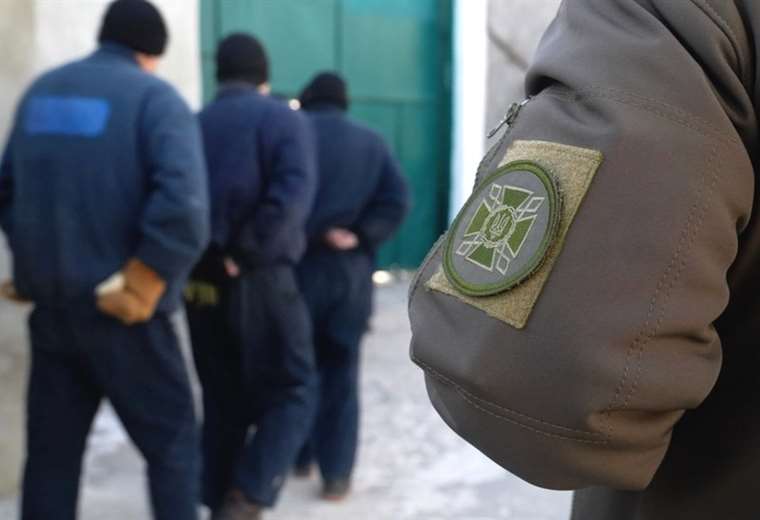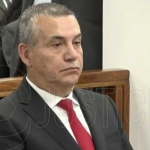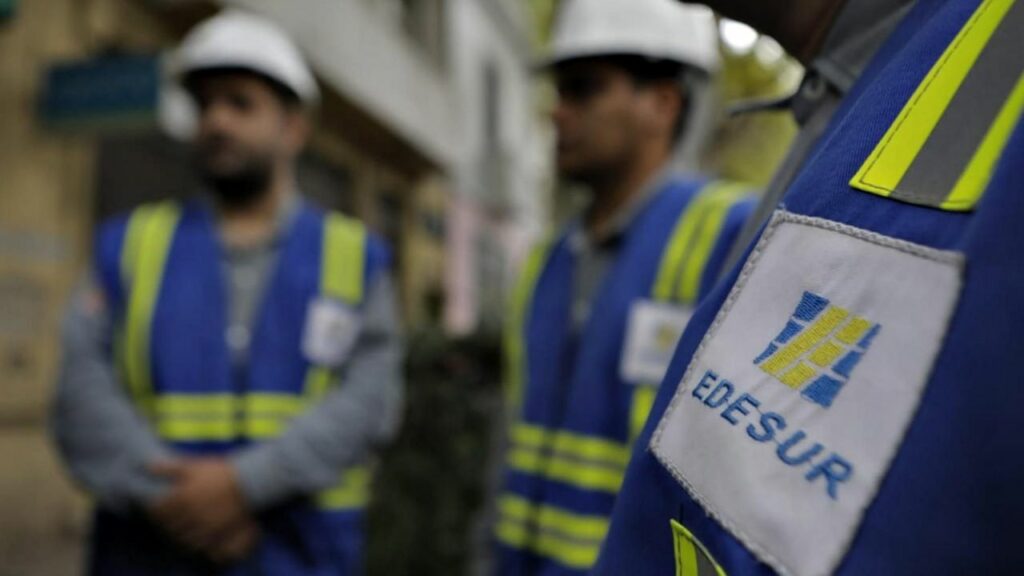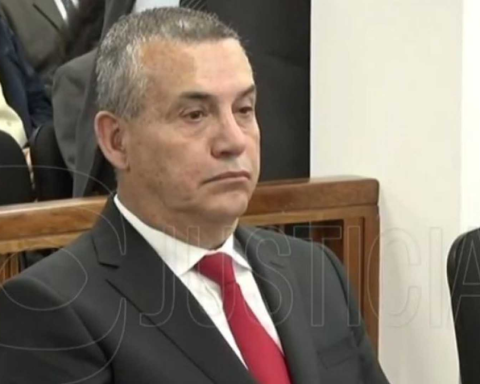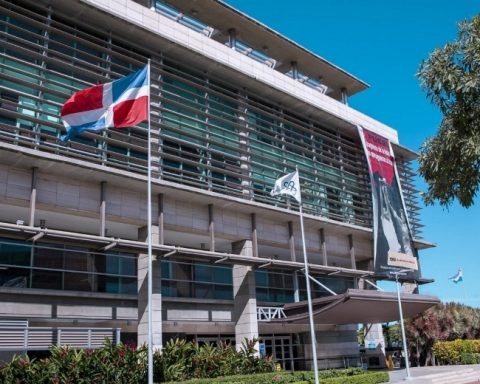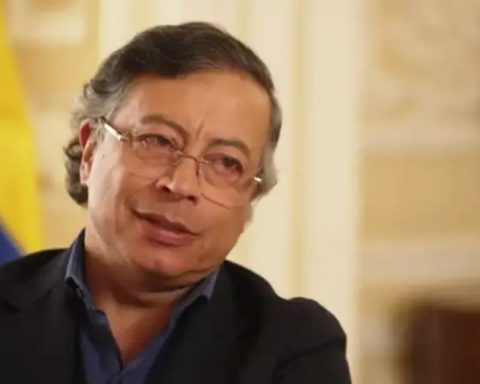February 16, 2023, 7:47 AM
February 16, 2023, 7:47 AM
Once again, Russian missiles were threatening Ukraine from the sky as we entered these prisoner of war facilities in the west of the country.
In this crude building, one of 50 similar places in Ukraine, are hundreds of Russian soldiers, conscripts and mercenaries captured during the invasion.
The roar of Ukrainian air defenses could be heard in the distance as we were led into a basement, where we were met with the image of dozens of prisoners who took refuge from the Russian attack.
Prisoner exchanges have become a regular feature of this war and it is crucial for Kyiv that they continue. Ukraine said this month that, so far, had secured the release of 1,762 men and women through these types of exchanges.
These are very delicate operations, which often take months to organize.
Installation
Under the Geneva Conventions, prisoners of war They should not be displayed or shown to the public.
We were allowed to approach whoever we wanted and we asked for their consent. But the guards were with us wherever we went and it was unlikely that these men spoke freely.
Many hid their faces to further protect their identities.
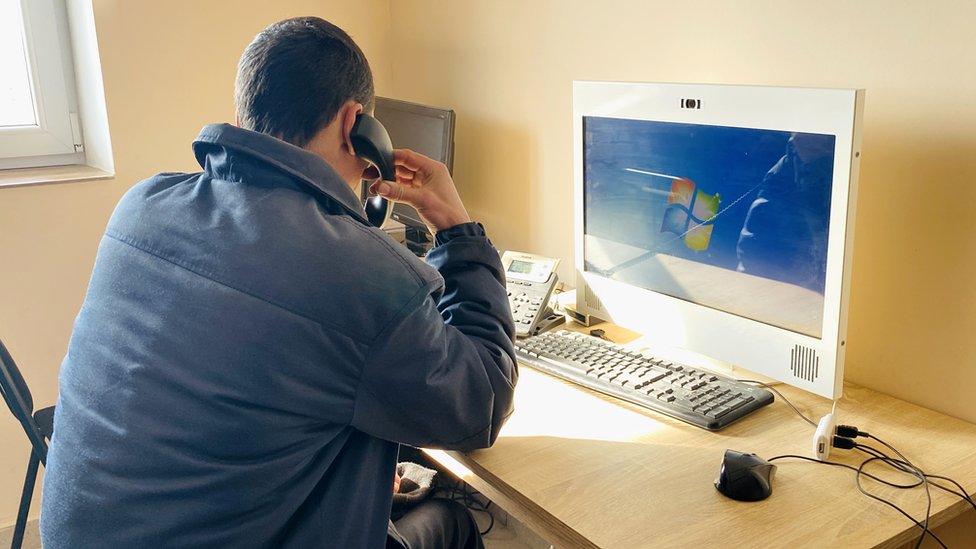
Last November, a UN human rights report documented abuses by both sides of the conflictbased on interviews with prisoners who spoke of cases of torture and ill-treatment.
Here the guards seemed eager to show that they were treating the prisoners well.
One fighter said that he had worked for a group of mercenaries. He had been brought to this facility three days earlier, after being taken prisoner near the eastern town of Soledar, which was captured last month by Russian forces.
war wounds
Of the prisoners, a handful looked defiant. We meet the gaze of a prisoner who said he was captured in the Lugansk region on December 29.
“I hope they trade me and I don’t have to go back to the army,” he said.
“What if you don’t have a choice?” I asked.
He paused for a second: “I have some ideas. I could go back by giving myself up voluntarily.”
On leaving the shelter it became apparent that half the prisoners had been wounded in combat.
Some had their hands or feet bandaged. Others moved with a heavy limp.
A young man was moved when he described how he had lost his leg when a grenade exploded.
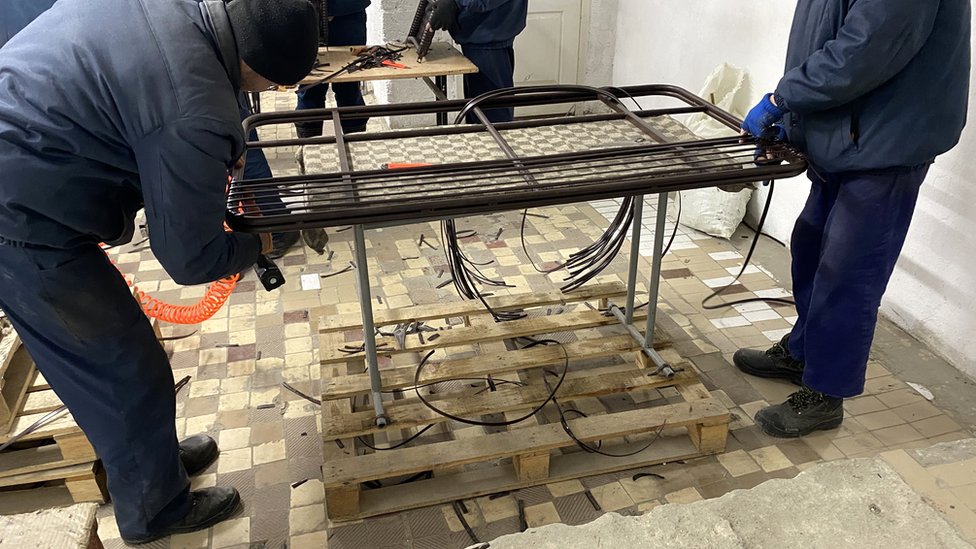
As we neared the pulsing sound of a compression drill, a small production line appeared where POWs were assembling outdoor furniture sets.
They worked again looking down.
We were told that a local company had a contract with the facility, which meant that the inmates could also earn some money, mainly to spend on cigarettes and candy.
Most of the prisoners of war are forced to have jobs like this. Apparently, only Russian officers can choose whether or not to work.
At lunchtime, the prisoners were taken to a temporary canteen on the top floor. Through the window, a Ukrainian flag fluttered in the cold wind.
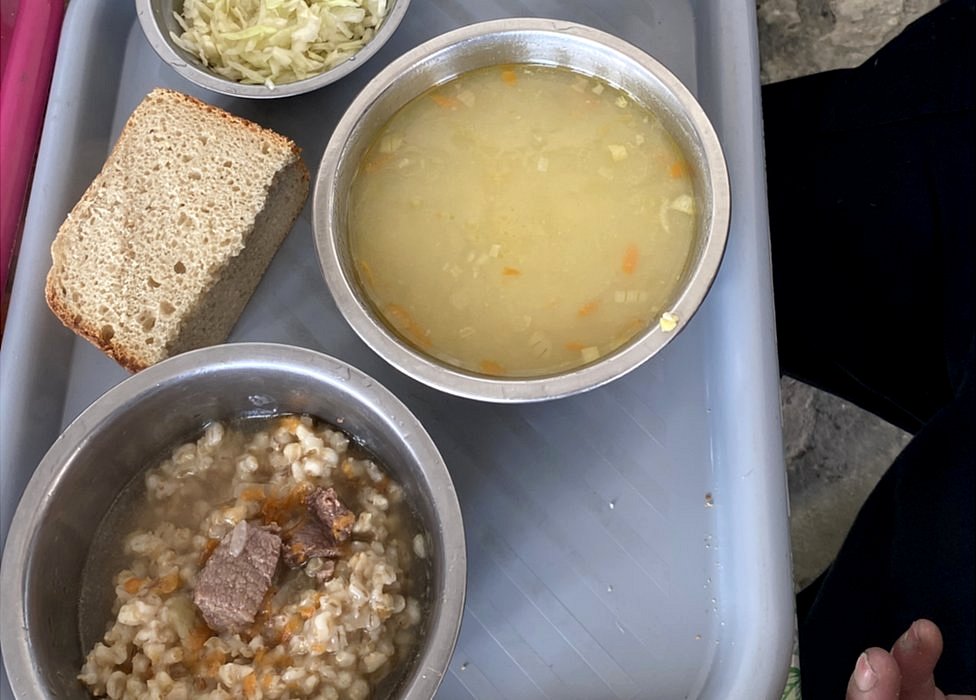
They ate quickly and in silence, except for the sound of food.
Then, table by table, in a moment of perfect choreography, they came together and shouted in Ukrainian: “Thank you for lunch!”
calling home
Inmates here are forced to watch television in Ukrainian, including documentaries about Ukrainian history and the southern city of Mariupol, which was nearly razed in a months-long Russian siege and bombardment.
Some of the Ukrainian soldiers who had defended Mariupol were part of the latest exchange.
We asked an inmate if he understood what he was seeing.
“More or less,” he said. “I find it educational.” It is unlikely that she would have said something unflattering.
It is quite possible that some of the Russians in the room could not understand the program they had to watch, and they may not have wanted to.
Inmates are allowed one phone call every two weeks, according to guards. For their families in Russia, these calls are often the first chance they have to discover that their children have been captured.
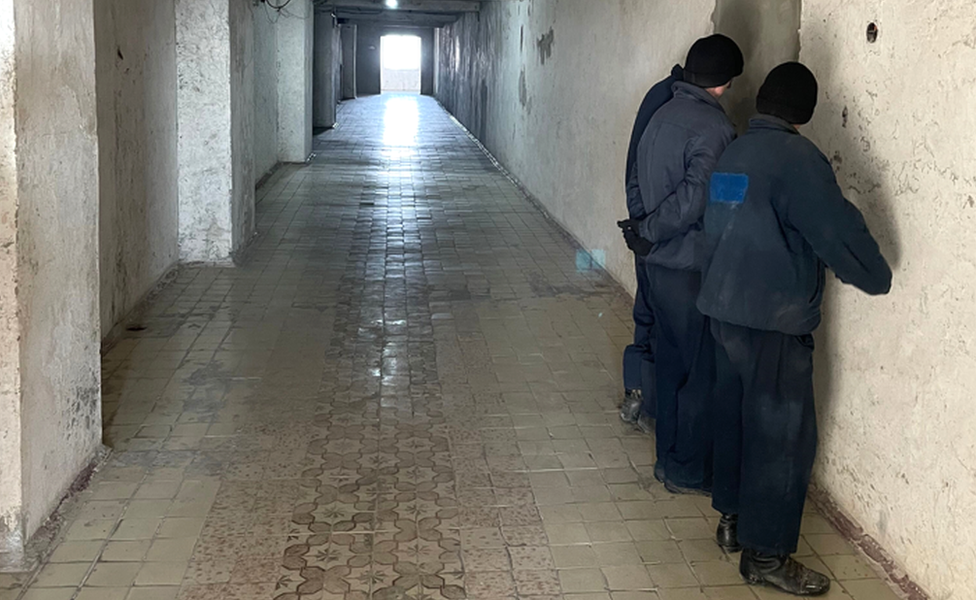
“Where are you? I’ve asked half the city about you!” the mother of a young man could be heard saying on the phone.
“Mom, wait. I’m in captivity, I can’t say more“.
“With the bloody Ukrainians?” said her mother, before breaking down in tears.
“That’s all, mom. Take it easy,” he told her, as a guard stood in front of him. “The most important thing is that I am alive and healthy.”
Some of the prisoners’ calls went unanswered, leaving them waiting for another chance on the phone and a future prisoner exchange.
Remember that you can receive notifications from BBC Mundo. Download the new version of our app and activate them so you don’t miss out on our best content.
